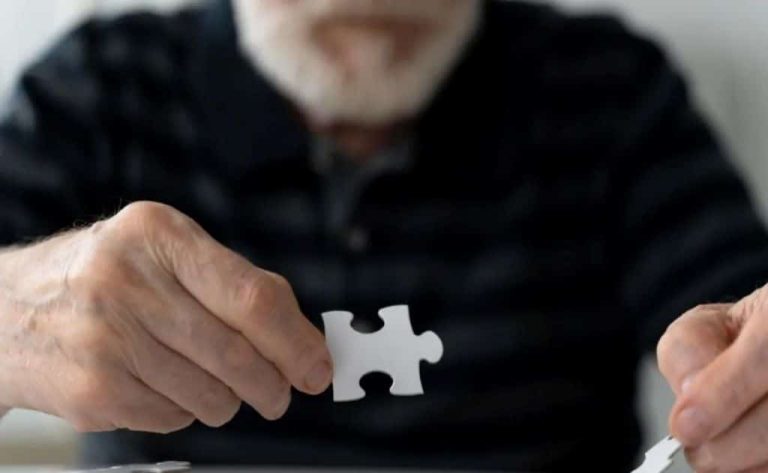12 de abril 2024

Children of Exile: The Births “Sowing Hope” in the Camp of Nicaraguan Farmers

PUBLICIDAD 1M
PUBLICIDAD 4D
PUBLICIDAD 5D
Confronting discrimination. In Nicaragua, a patient was locked up by their family in a shed in the backyard of the house

On April 11, we commemorate World Parkinson’s Day, a significant day to reflect on the challenges that Parkinson’s patients face daily. On this special occasion, it is essential to address the negative stereotypes surrounding those of us who live with Parkinson’s and unite in the fight to combat them.
It seemed outrageous to me that in Nicaragua a family would confine a Parkinson’s patient in a shed in the backyard of the house, and that they would pass food to them under the door, as if the sick person were a pariah, or a carrier of a virulent contagious disease that endangers all their family members.
Lack of understanding about Parkinson’s disease leads to stigma, generating significant problems for affected individuals and their families, who risk socially isolating themselves. Combating this stigma involves demystifying the erroneous image surrounding it, challenging the prejudices and stereotypes ingrained in our society.
In advanced stages of the disease, patients tend to gradually disengage from their social environment, ceasing to participate in common activities and becoming invisible to society. This invisibility leads to a lack of awareness of the enormous difficulties they face daily, both themselves and their caregivers.
In a recent meeting in Managua with Parkinson’s patients, a woman in her 50s said she didn’t feel comfortable speaking in public because she had social phobia caused by negative behaviors towards her from people who didn’t understand her illness. For some reason, she decided to fight, and in this meeting, she had three participations that will surely help her overcome the fear of speaking to a group of people.
It is time to debunk these myths that only perpetuate the lack of understanding and empathy towards patients. The shortage of information and awareness about Parkinson’s disease has led to the creation of harmful stereotypes that negatively impact patients and our loved ones.
Stereotypes, defined as shared beliefs about the characteristics of a social group, simplify and exaggerate the traits attributed to that group. These stereotypes serve to justify affective and behavioral reactions toward that group, being rigid and resistant to change, despite information that contradicts them.
The forming and maintening of stereotypes are based on a basic cognitive process called categorization, which allows organizing the complexity of the environment by classifying people into groups according to common characteristics. This social categorization can lead to homogeneous perceptions about a subgroup, such as those of us who are Parkinson’s patients.
These stereotypes can have devastating consequences in the daily lives of those who live with Parkinson’s: from facing situations of discrimination to experiencing social isolation, through a lack of emotional support, and a reduction in job opportunities. Patients can feel misunderstood, stigmatized, and marginalized, which directly affects our quality of life and emotional well-being.
When receiving a diagnosis of Parkinson’s, the impact is felt in all aspects of life. Lack of knowledge about the disease at a social level, or the mistaken idea that exists about it, leads to many doubts when communicating the diagnosis to those around you.
In my case, when on an afternoon in June 2023 Dr. Adrian Coulson diagnosed me with Parkinson’s, I knew almost nothing about this disease, but I had a strongly anchored idea in my brain that it was something very bad, so the news hit me like a whip. However, I quickly regained my composure. In the following days, I dedicated myself to research, and although I worry about how this disease will be lurking to attack me in the future, I have decided to live in the present and dedicate myself fully to Parkinson’s Patients of Nicaragua (Parkin-Nica).
Stereotypes can express cultural or personal beliefs about the characteristics of a group and have affective and motivational connotations that influence social perception and categorization.
To address these stereotypes, it is essential to invest in education and awareness. It is necessary to disseminate accurate and up-to-date information about Parkinson’s, its symptoms, available treatments, and how it impacts the lives of patients. It is essential to promote empathy, understanding, and solidarity towards people who live with this disease, recognizing our dignity.
The media plays a crucial role in this battle against stereotypes. They have the power to change misconceptions by offering balanced and accurate coverage of Parkinson’s. Highlighting real stories of patients, showcasing their achievements and challenges, and questioning common stereotypes are fundamental steps to raise awareness and provide support.
Moreover, the media can collaborate closely with organizations dedicated to Parkinson’s to disseminate awareness campaigns, promote educational events, and provide platforms for patients to share their experiences.
By offering a more authentic and compassionate representation of people with Parkinson’s, the media can significantly contribute to combating harmful stereotypes and fostering greater understanding and support for this community.
It is imperative to join forces to challenge stereotypes against Parkinson’s patients. Through education, awareness, and a more accurate representation in the media, a more inclusive and supportive environment can be created for those of us facing this disease.
This article was published in Spanish in Confidencial and translated by Havana Times. To get the most relevant news from our English coverage delivered straight to your inbox, subscribe to The Dispatch.
PUBLICIDAD 3M
Periodista nicaragüense. Escribió prensa clandestina y fue redactor y editor del diario Barricada. Coautor de "Corresponsales de Guerra". Fundador y director de la revista Medios y Mensajes y la editorial Editarte. Ganó el Premio Latinoamericano de Periodismo José Martí, de la agencia de noticias Prensa Latina S.A. Además, es autor de "Huérfanas de Guerra" y "El oráculo de la emperatriz", entre otros libros.
PUBLICIDAD 3D